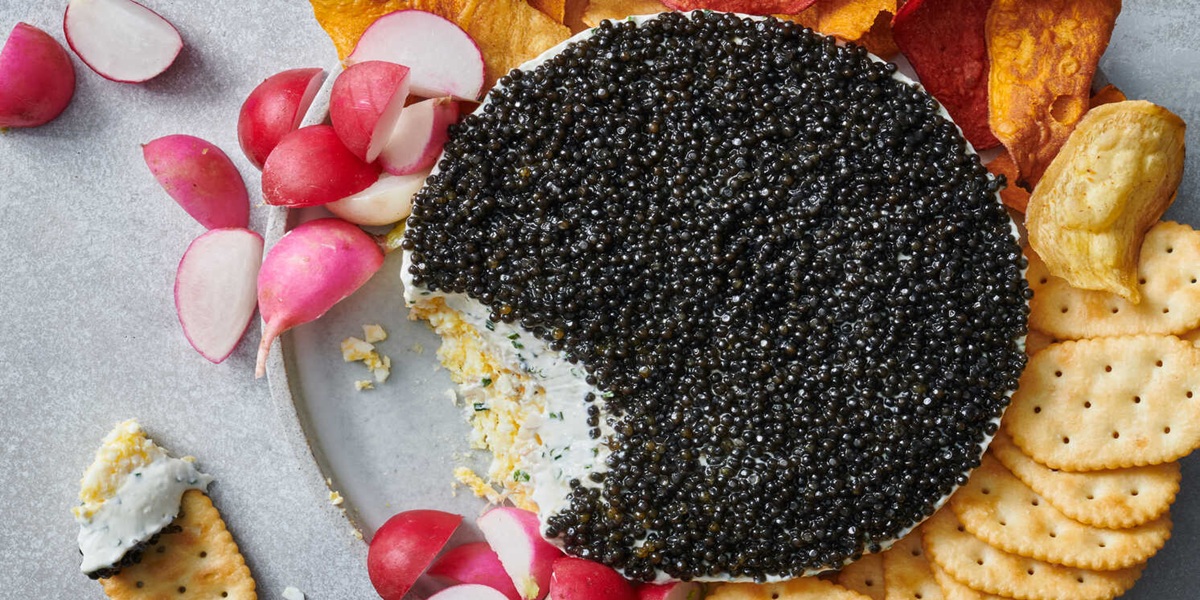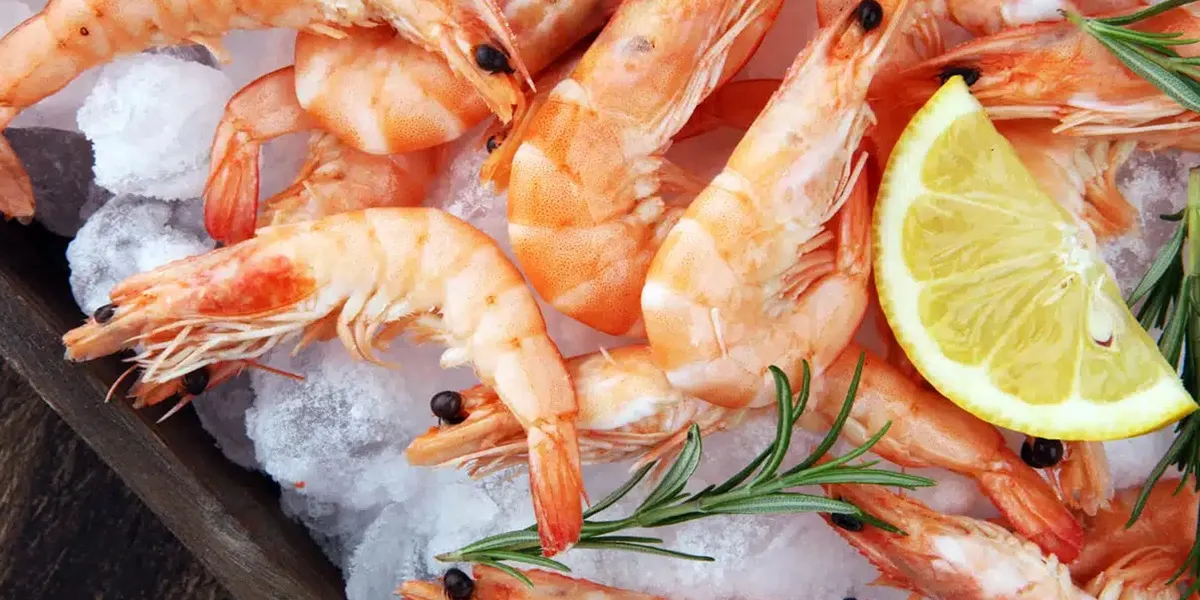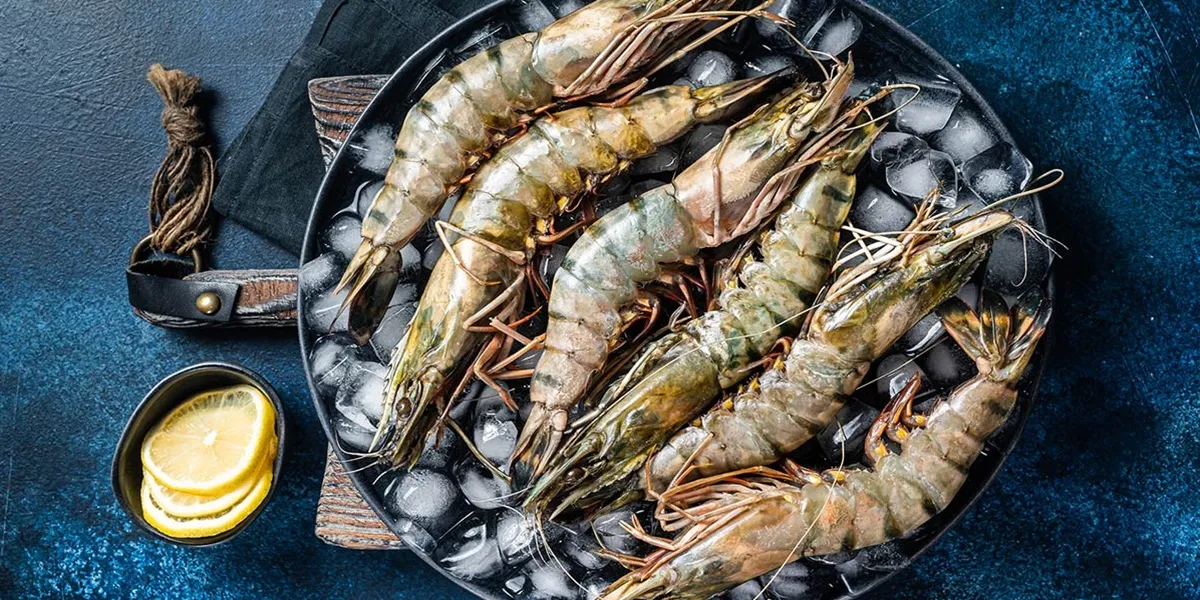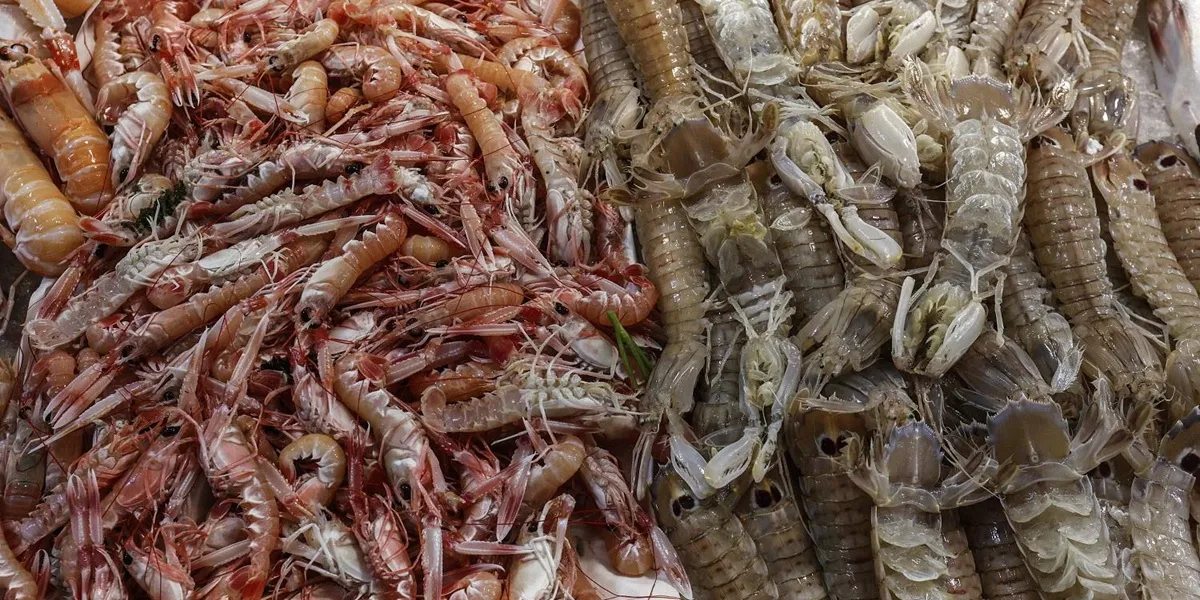When indulgence meets intention, caviar becomes more than just a gourmet delight — it becomes a powerhouse for modern, health-focused diets. Whether you’re following keto, paleo, or a gluten-free regimen, this delicacy isn’t just allowed — it’s encouraged. Naturally low in carbohydrates, rich in essential fats, and packed with bioavailable nutrients, caviar seamlessly fits into the clean-eating lifestyles that prioritize purity, quality, and performance.
From omega-3 fatty acids that support cognitive function and cardiovascular health, to vitamin B12 and selenium that bolster energy and immune response, caviar delivers big benefits in small bites. Plus, its naturally gluten-free composition and zero processing make it a top-tier choice for those avoiding allergens and additives.
In this article, we’ll explore the different types of caviar, their distinct nutritional profiles, and how each one can enhance your special diet without compromise. Ready to discover how this luxurious food can elevate your health goals? Let’s dive in.
Caviar and Clean Eating: Why It Fits into Modern Gourmet Diets
Clean eating focuses on consuming whole, unprocessed foods with high nutritional value — and caviar fits this philosophy better than most people realize. Harvested directly from sturgeon without artificial processing, high-quality caviar contains no additives, preservatives, or gluten. It’s rich in essential nutrients like omega-3 fatty acids, vitamin B12, selenium, and protein — all of which support cellular function, brain health, and immune response.
Caviar’s purity and nutrient density make it a powerhouse for individuals following keto, paleo, or gluten-free diets. It provides a high-fat, low-carb profile ideal for ketosis while avoiding the grains and dairy eliminated by paleo followers. Gluten-sensitive individuals also benefit from caviar’s completely natural, gluten-free origin.
And while caviar is enjoyed globally, one question continues to dominate: Why Is Iranian Caviar the Best in the World? The answer lies in its exceptional quality, ethical harvesting practices, and unrivaled flavor profile — thanks to the pristine waters of the Caspian Sea. Iranian caviar, particularly Beluga and Ossetra varieties, is known for its complex texture, delicate salting, and sustainable sourcing — attributes that make it a top choice for health-conscious gourmets.
For those seeking a luxurious yet biologically aligned food source, caviar proves that indulgence and integrity can coexist. It’s a clean-eating staple — naturally elegant, deeply nourishing, and completely free from modern-day dietary disruptors.
Keto and Caviar: The Perfect Pairing for High-Fat, Low-Carb Excellence
The ketogenic diet demands a strict intake of high fats, moderate protein, and minimal carbs — a challenge when trying to maintain variety and flavor. Enter Caviar: a naturally keto-friendly food that enhances both taste and metabolic function.
Caviar contains approximately 13-15 grams of fat per 100g serving, most of which are healthy unsaturated fats, including essential omega-3 fatty acids. These fats not only support ketosis but also improve cardiovascular health, reduce inflammation, and promote cognitive clarity — crucial benefits for anyone following a high-fat lifestyle.
Moreover, caviar has virtually zero carbs, making it a flawless addition to ketogenic meals. Its protein content also aids in satiety and muscle preservation, two key concerns for keto practitioners trying to maintain lean mass while shedding fat. The sodium content is moderate, helping maintain electrolyte balance — especially important during the first stages of ketosis when the body loses water and minerals rapidly.
In addition to its macronutrient alignment, caviar is packed with micronutrients often lacking in keto diets, such as vitamin D, B12, and selenium. These support immune resilience, hormonal function, and mental performance — all areas where ketogenic followers must remain vigilant.
Unlike processed keto snacks or protein supplements, caviar offers a gourmet, whole-food experience with no hidden sugars or artificial ingredients. Whether spooned delicately over avocado slices or served alongside keto-friendly blinis made from almond flour, caviar delivers sophistication and nutritional excellence in every bite.
If you’re committed to clean keto living and want to upgrade your plate with something both functional and flavorful, caviar is the ultimate answer.
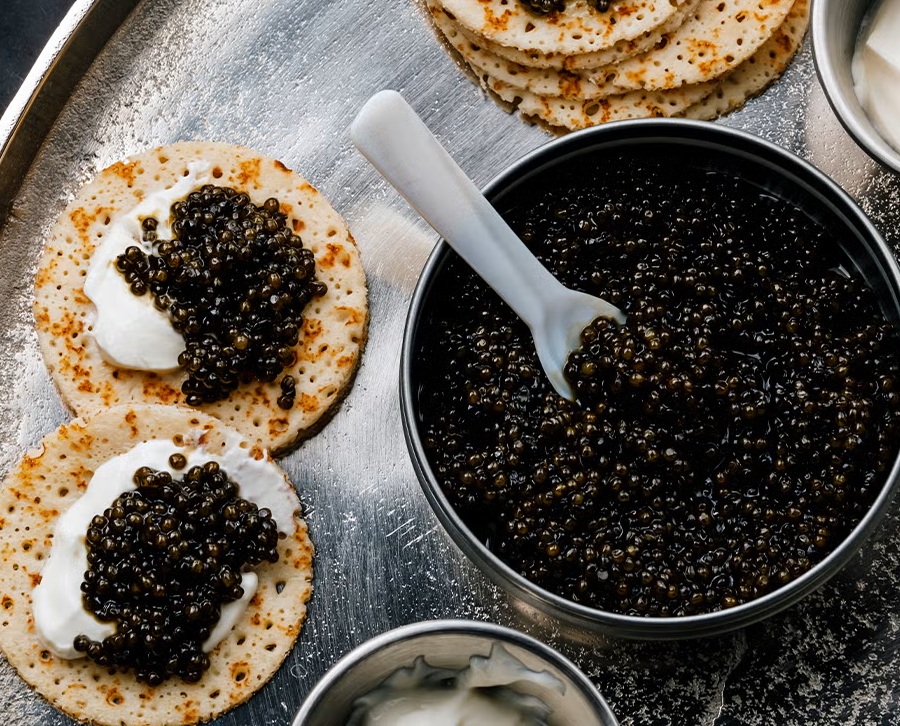
Omega-3s and Ketosis: How Caviar Enhances Ketogenic Performance
When it comes to boosting the ketogenic experience, omega-3 fatty acids are key — and caviar provides them in abundance. The long-chain omega-3s found in caviar, particularly EPA and DHA, help reduce inflammation, improve brain function, and support fat metabolism, all of which enhance ketogenic performance.
Many keto dieters focus heavily on fats but overlook the importance of fat quality. That’s where caviar stands out. Its fats are not just calorically dense but functionally beneficial, supporting cardiovascular health and neural pathways while aiding in the body’s adaptation to ketosis.
Additionally, omega-3s in caviar help balance the omega-6-heavy nature of most Western diets. This ratio is critical for reducing the risk of chronic diseases and improving overall metabolic function. DHA also supports mental clarity — a well-known side benefit of successful ketosis.
Another key issue for keto followers is supplement quality. Fish oil capsules are common but can oxidize and lose potency. In contrast, fresh caviar provides bioavailable omega-3s in their natural state. But choosing the right product matters — and that brings us to a vital question: How to Identify High-Quality Caviar? Look for firm, glossy pearls with uniform size, subtle aroma, and labeling that indicates sustainable harvesting practices. Avoid products with artificial preservatives or excessive salt.
Incorporating high-quality caviar into your keto regimen isn’t just about taste — it’s about optimizing health. It provides anti-inflammatory properties, strengthens heart health, and supports cognitive sharpness. For keto dieters seeking both functionality and indulgence, caviar is not just a luxury — it’s a strategic advantage.
Paleo-Approved Luxury: Is Caviar a Natural Fit for Ancestral Eating?
The paleo diet emphasizes foods that mimic what our pre-agricultural ancestors would have eaten — whole, nutrient-dense, and unprocessed. Caviar fits these criteria with ease. It’s a naturally harvested, minimally handled superfood that aligns perfectly with the core values of paleo living.
Sourced directly from wild or farmed sturgeon, caviar undergoes minimal treatment before reaching your plate. There are no added sugars, no grains, and no artificial preservatives — just nutrient-rich roe packed with essential amino acids, vitamins, and healthy fats. This makes caviar not only paleo-compliant but also exceptionally nourishing.
One of the primary advantages of caviar within the paleo framework is its rich micronutrient content. It delivers vitamin B12, iron, selenium, and omega-3 fatty acids — all of which are vital for brain health, energy production, and immune defense. These nutrients are often depleted in modern diets, making caviar a compact solution for restoring balance.
Most importantly, The Health Benefits of Caviar: More Than Just a Luxury Food are rooted in science. Studies show that its omega-3 content helps regulate mood, lower inflammation, and support hormonal balance — key benefits for anyone seeking wellness through ancestral nutrition.
Caviar also offers variety and elegance without violating paleo principles. Whether enjoyed as a topping for cauliflower pancakes or alongside pasture-raised eggs, it elevates simple meals into gourmet experiences.
For paleo eaters tired of the same food cycle, caviar offers a refreshing — and historically appropriate — alternative. It’s a rare example of a food that’s both primal and sophisticated.
Gluten-Free and Guilt-Free: Why Caviar Is Safe for Celiac and Gluten-Sensitive Individuals
For those with celiac disease or gluten intolerance, navigating the world of gourmet foods can feel like a minefield. But caviar is a rare exception — both indulgent and inherently gluten-free.
Caviar is harvested from fish eggs and typically preserved with only salt, making it naturally free of gluten-containing ingredients. Unlike processed seafood alternatives or flavored roe, traditional caviar doesn’t rely on wheat-based additives or thickeners. This makes it a safe and reliable protein source for those avoiding gluten.
However, individuals must still be vigilant about contamination. While pure caviar is gluten-free, some lower-quality brands may introduce risk through cross-contamination or added flavorings. It’s crucial to choose brands that adhere to strict purity standards and clearly label their ingredients. Look for certifications or statements indicating gluten-free compliance, especially if you have celiac disease.
Beyond safety, caviar brings real nutritional value to gluten-free diets. It’s rich in bioavailable vitamin B12, iron, and omega-3s — nutrients often lacking in gluten-free lifestyles. These compounds support neurological function, red blood cell formation, and anti-inflammatory responses.
For gluten-sensitive eaters seeking gourmet experiences without risk, caviar is a smart choice. It delivers elegance and nutrition without compromise. From pairing with gluten-free crackers to topping scrambled eggs, it allows for indulgence that’s both safe and sophisticated.
Gluten-free dining doesn’t have to be limiting — and with caviar, it can even be luxurious.
Protein Powerhouse: The Role of Caviar in Muscle Recovery and Satiety
Caviar is more than a luxurious delicacy; it’s a potent source of high-quality protein, essential for muscle repair and satiety. A 100-gram serving of caviar provides approximately 25 grams of protein, containing all nine essential amino acids necessary for muscle synthesis and recovery.
Beyond muscle health, the rich protein content in caviar contributes to prolonged feelings of fullness, aiding in appetite control and weight management. This makes caviar an excellent addition to diets focused on lean muscle gain and fat loss.
Moreover, caviar is abundant in omega-3 fatty acids, particularly EPA and DHA, which play a crucial role in reducing inflammation and promoting cardiovascular health. These fatty acids also support cognitive function and overall well-being.
Incorporating caviar into your diet can thus provide a dual benefit: supporting muscle recovery and enhancing satiety, all while delivering essential nutrients that promote overall health.
Micronutrient Richness: The Hidden Advantage of Caviar in Restrictive Diets
For individuals following restrictive diets like keto, paleo, or gluten-free, obtaining essential micronutrients can be challenging. Caviar emerges as a nutrient-dense food that can bridge this gap effectively.
Caviar is a rich source of vitamin B12, crucial for nerve function and red blood cell formation. It also provides significant amounts of selenium, an antioxidant that supports thyroid function and immune health. Additionally, caviar contains vitamin D, essential for bone health and immune response, and choline, important for liver function and brain development.
Incorporating caviar into restrictive diets can thus help prevent common nutrient deficiencies, ensuring a more balanced and healthful dietary intake.
Avoiding Pitfalls: What to Watch Out for When Choosing Caviar for Special Diets
Selecting the right caviar is crucial, especially for those adhering to special diets. Here are key considerations to ensure your choice aligns with your dietary needs:
• Check for Additives: Opt for caviar with minimal ingredients—ideally just fish roe and salt. Avoid products with added preservatives or flavor enhancers that may not align with clean eating principles.
• Sodium Content: Caviar can be high in sodium. If you’re monitoring salt intake, look for low-sodium options or consume in moderation.
• Source Transparency: Choose caviar from reputable sources that provide information about the origin and harvesting methods, ensuring sustainability and quality.
• Packaging and Storage: Ensure the caviar is properly stored and packaged to maintain freshness and prevent contamination.
By paying attention to these factors, you can enjoy caviar that complements your dietary goals without compromising on quality or health.
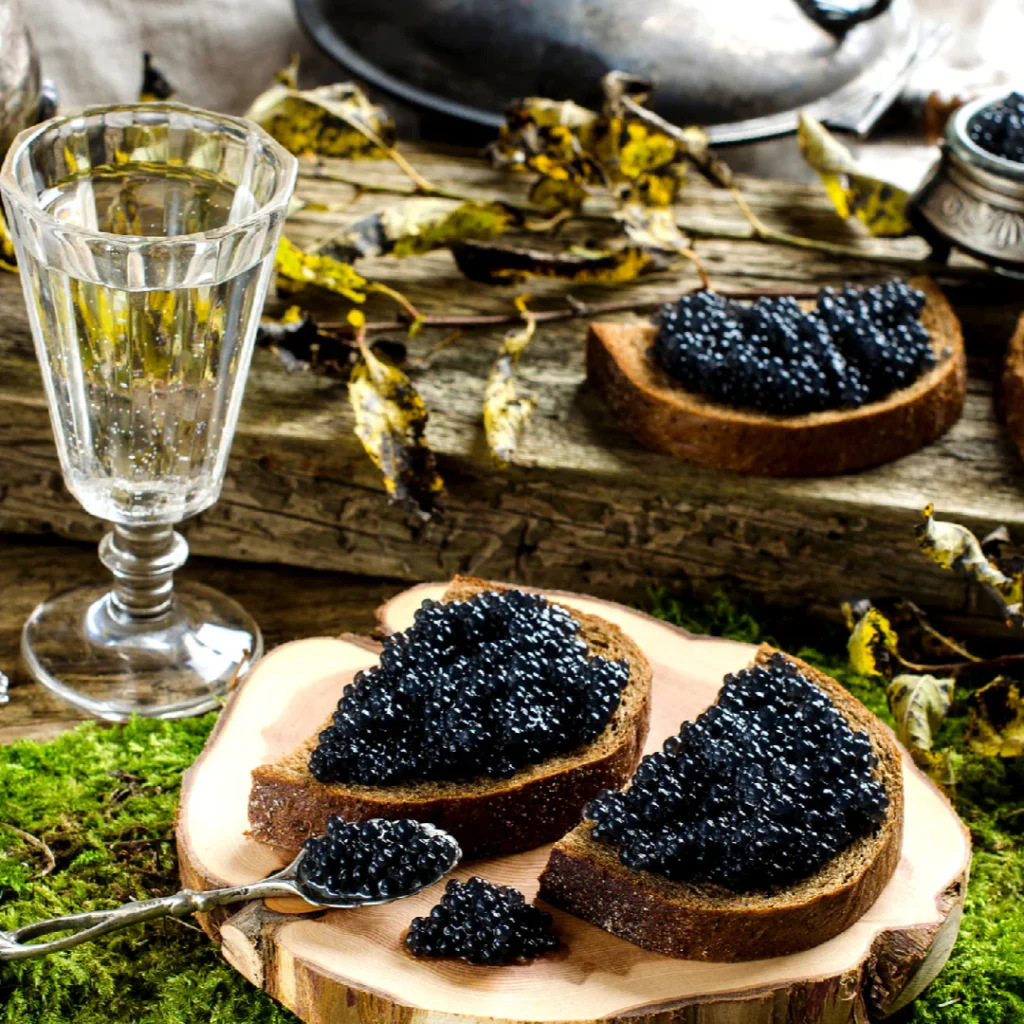
Caviar Recipes for Keto, Paleo, and Gluten-Free: Easy, Elegant, and Nutrient-Dense
Caviar’s versatility makes it an excellent ingredient for various dietary preferences. Here are some recipe ideas:
• Keto: Top cucumber slices with a dollop of cream cheese and a spoonful of caviar for a low-carb appetizer.
• Paleo: Serve caviar on avocado halves, drizzled with lemon juice and olive oil, for a nutrient-rich snack.
• Gluten-Free: Create blinis using almond flour and top with sour cream and caviar for a delightful treat.
These recipes not only adhere to specific dietary requirements but also bring a touch of elegance and a boost of essential nutrients to your meals.
Sustainable Indulgence: Choosing Eco-Friendly Caviar Without Compromising Your Diet
Sustainability is a growing concern among health-conscious consumers. When selecting caviar, consider the following to ensure eco-friendly choices:
• Farmed vs. Wild: Opt for caviar from sustainably farmed sources to reduce the impact on wild sturgeon populations.
• Certifications: Look for products certified by organizations like the Marine Stewardship Council (MSC), indicating adherence to sustainable fishing practices.
• Local Sourcing: Whenever possible, choose locally sourced caviar to minimize carbon footprint associated with transportation.
By making informed choices, you can enjoy the luxurious taste of caviar while supporting environmental sustainability and aligning with your dietary values.
Conclusion: The Perfect Harmony of Elegance and Nutrition
Caviar is no longer just the symbol of extravagance — it’s now a smart nutritional choice for those embracing clean, intentional diets. Whether you’re seeking the high-fat support of keto, the ancestral purity of paleo, or the allergen-free integrity of gluten-free eating, caviar delivers. Its wide array of essential nutrients, natural sourcing, and compatibility with restrictive eating patterns make it a unique, functional superfood.
By understanding the types of caviar available and their distinct benefits, you can make informed choices that support your wellness journey without sacrificing flavor or elegance. Caviar isn’t a cheat meal — it’s a celebration of how indulgence and health can coexist.
Stay with us as we break down the best types of caviar and reveal why this ancient delicacy is becoming a staple in modern gourmet diets.

